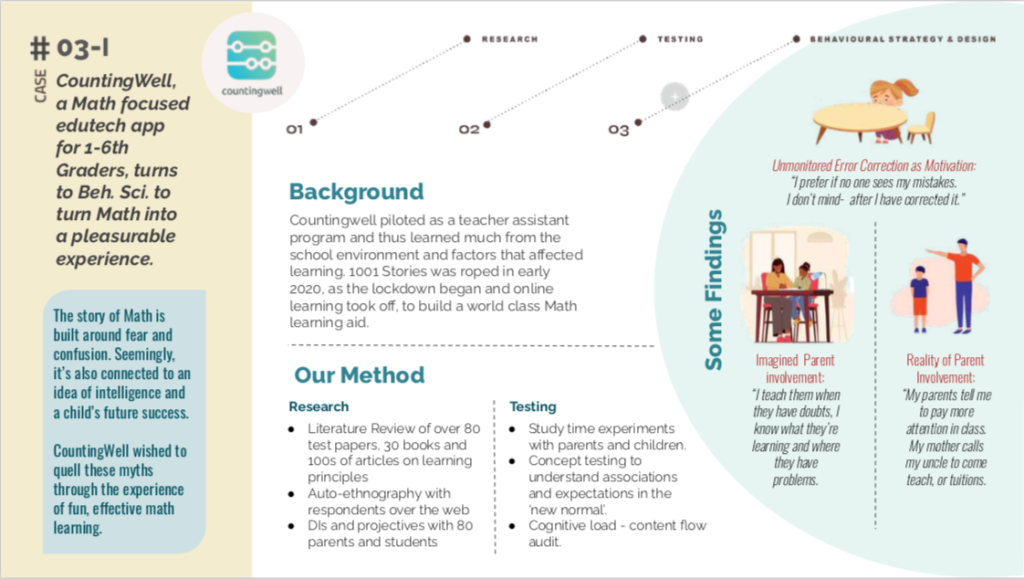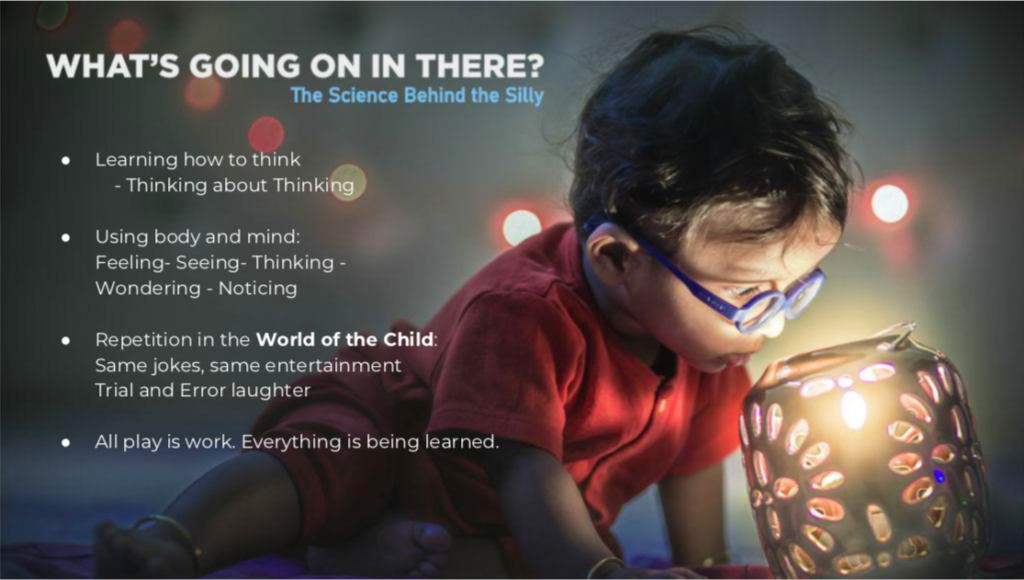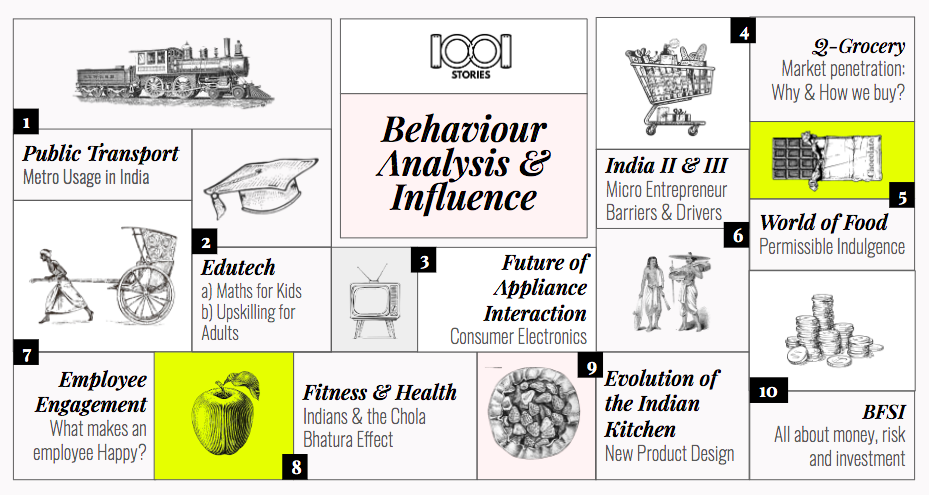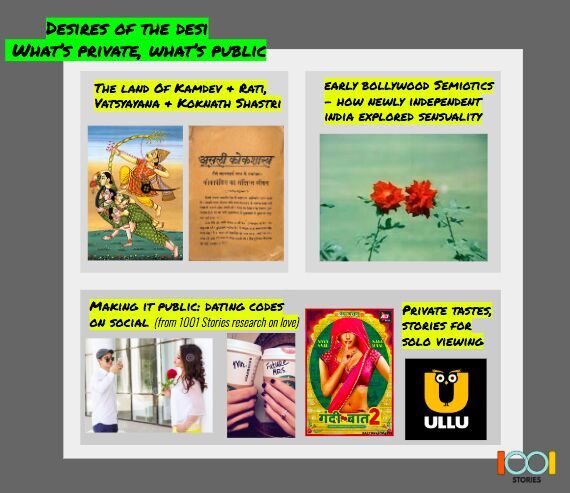Background
The story of Math is built around fear and confusion. Seemingly, it’s also connected to an idea of intelligence and a child’s future success. Countingwell wished to quell these myths through the experience of fun, effective math learning.
Countingwell is a Maths learning tool for students. It is an application meant for students from Grade 6 to Grade 10 studying in Central Board for Secondary Education (CBSE). Building a solid foundation in mathematics during these specific grades is crucial to the much dreaded board exams. This is incredibly stressful for parents and children, considering they shuffle their time between school, tuitions, extracurricular activities and education apps. Countingwell piloted as a teacher assistant program and thus learned much from the school environment and factors that affected learning. 1001 Stories was roped in early 2020, as the lockdown began and online learning took off, to build a world class Math learning aid. Was it possible to use Behavioural Science for learning Maths?
Our challenge was three-pronged.
- Re-looking the app to ensure that it made complex concepts easy and the subject less intimidating and in time, likeable.
- Study learning patterns of children of various age groups to ensure the app facilitates learning.
- To carve a unique space for the brand and product in the ever growing Edutech space.

Our Approach
The team broke the project into two parts:
- Consumer Research
We conducted over a hundred and fifty interviews with various stakeholders across the country to understand children’s outlook to the world and schooling, parenting, coaching and exam culture and its consequential impact on learning for children.
From school teachers, private tutors to teachers for children with special needs, we held in depth interviews to understand the schools’ view on today’s education culture and the needs of students.
Next, we spoke to parents and had dialogues with families across the country – individually and in groups, to understand parent-child dynamics and its influence on a child’s learning patterns and study routine.
Finally, we spoke to the children. This helped us understand how they manage work and play, what role do learning apps, tuition, parents and school play in their lives.

This research was conducted, above all, in the times of Covid, in the midst of the lockdown. Where on one hand, it played a deterrent in physically meeting mothers to conduct one on one interviews, it proved to be a great catalyst in holding in-depth, intimate multi-hour long dialogues with parents over the phone, whatsapp and zoom for a deeper understanding of the world of the child.
And more importantly, a detailed understanding of the impact, problems and opportunities that Covid had brought to the forefront for the category and new entrants.
- Applying Principles of Learning and Behavioural Science Tools
Using various resources and principles such as Motivation Theory, Growth Mindset, BJ Fogg’s B=MAP, EAST framework and findings from literature on social norms we conceptualised a favourable strategy that would make adoption of the Countingwell app easy and the students’ performance after usage, positively effective and measurable.

We also redesigned learning paths for the app based on these principles to bring a pointed approach to the experience the app was delivering to its users.
Ideas and Implementation
The brain looks for signals from its environment to note that there has been a change in it. Context Architecture™ calls this a Response Mechanism.
It’s not just the child who needs feedback. A parent also needs a response mechanism from the child to know that App is working.
To increase adoption and usage of the app we worked on the following
1. Behaviour Design
Using Choice Architecture, Message framing and Gamification we designed subconscious primers to make the user feel smarter as he/she goes along. Not just with prolonged use, but as small chunks are completed, assessments would show the user how they have visibly changed in performance in the time that they have begun to use the app. We also broke the study material down into smaller clusters that could bring daily math practise time to inside 20 minutes, making it an easy to adapt habit.

2. Content
Based on the principles of cognition, memory and mental models, we advised on and created a Content Bible that would guide users to assimilate and recall learnings. Using Motivation theory, we developed ways to create content that would be challenging but not intimidating to the child. Testing revealed that these measures brought an increase in confidence and performance of the student.

3. Branding, Communications and Pricing
Countingwell approached 1001 Stories post these interventions to help with their national launch, brand positioning and go-to- market strategy. The team researched willingness to pay in Tier I and II cities in India, advised on pricing and crafted behavioural strategy to increase conversion from demo to subscription in phase II of the project.



